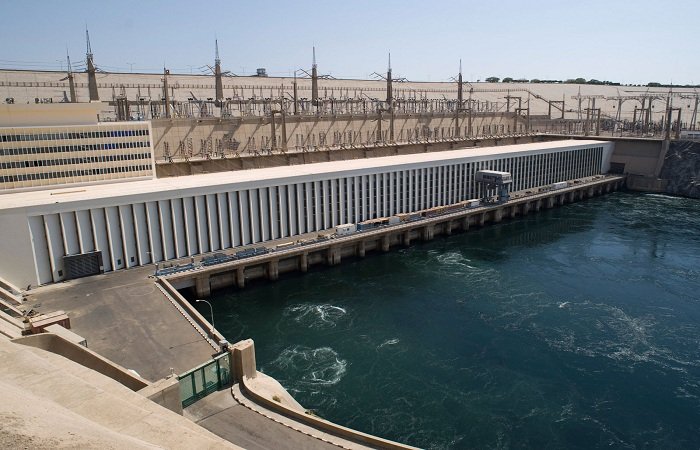Amazing Secrets of Aswan.
Aswan: Egypt’s Ancient Gateway and Modern Charmer
Introduction
Located at the far southern end of Egypt, where the Nile widens and the Sahara Desert meets the life-giving river, lies Aswan. It’s an extraordinary city that has for thousands of years been a crucial trade route and gateway between Egypt and Africa. Today, it offers an enticing fusion of modern culture and ancient history, dramatic landscapes, and striking architecture.
Aswan: A Historical Overview
Aswan, known as Swenet in ancient Egyptian, held significant strategic and economic value due to its location. It was an essential frontier for the Ancient Egyptians, often serving as a defense against southern invasions. The city was also renowned for its quarries, supplying granite for timeless monuments like obelisks, and acting as a gateway to Africa for the trading of goods and ideas.
The Nile River and its Cultural Significance
The Nile, the world’s longest river, is the lifeblood of Aswan, providing a constant supply of water to the otherwise arid region. The Nile in Aswan is at its most picturesque, with the river dotted with lush green islands and flanked by golden desert hills. The river has shaped the city’s culture and lifestyle – Nile cruises, fishing, and small scale farming along the banks are all central parts of life here.
Iconic Landmarks
The city of Aswan is dotted with iconic landmarks and archaeological sites. The Temple of Isis at Philae is one of Aswan’s prime attractions. It was relocated to the island of Agilkia from Philae Island, saving it from the rising waters of the Aswan High Dam in the 1960s. The Unfinished Obelisk, another remarkable monument, provides a window into ancient stone-working techniques.

Aswan High Dam
built between 1960 and 1970, is a marvel of modern engineering that controls the Nile’s flooding, generates electricity, and improved agricultural productivity. The creation of Lake Nasser, the world’s largest artificial lake, due to the dam’s construction, is another testament to human innovation.

The Mausoleum of Aga Khan III
the spiritual leader of the Nizari Ismaili sect of Shia Islam, showcases impressive modern Islamic architecture. The Nubian Museum, home to thousands of artifacts, tells the tale of Nubia’s ancient civilization and its transformation over time.
Aswan’s Unique Culture
Aswan stands out in Egypt due to its unique Nubian culture, which is distinct in language, music, art, and customs. The Nubians, one of the oldest civilizations in the world, have contributed significantly to the city’s cultural richness. Their vibrant music, distinctive homes painted in bright colors, and warm hospitality are experiences visitors cherish.
Local Cuisine
Aswan offers delicious Nubian and Egyptian cuisines. Dishes like “Fatta” (a bread soup), “Molokhia” (a soup-like dish made from jute leaves), and “Tamiya” (a fava bean falafel) are local favorites. Sweet dishes like “Kunafa” and “Basbousa” are popular desserts. Sipping on a cup of hot hibiscus tea is another culinary experience that is quintessentially Aswan.
Environmental Initiatives
Recently, Aswan has made considerable efforts in sustainability and conservation. Solar power projects have taken advantage of the sunny desert climate, and careful management of the Nile’s waters aims at preserving this crucial resource. The city is also making efforts to protect and conserve its ancient sites and promote eco-tourism.
Conclusion
Aswan is more than a city; it’s a testament to human ingenuity and resilience, an oasis of culture in the desert, and a beautiful blend of the old and new. Its historical significance, coupled with unique Nubian culture and striking landscapes, makes it an unforgettable destination. Aswan’s commitment to preservation and sustainability ensures that this gem will continue to shine for generations to come.
Moreover, the slow pace of life in Aswan, as compared to the bustling Egyptian cities like Cairo or Alexandria, offers an appealing contrast for visitors. The city thrives at a relaxed rhythm, with late afternoon siestas and leisurely strolls along the Nile being commonplace. In this city, the past and the present seamlessly converge, and the timeless charm of the Nile pervades everyday life.
Moreover, the city’s vibrant marketplaces or souks are a delight to explore, offering a wide range of products from traditional Nubian handicrafts to spices, perfumes, and jewelry. Shopping in Aswan is an experience filled with haggling, aromatic scents, vibrant colors, and the friendly banter of local shopkeepers.
For nature enthusiasts, Aswan provides ample opportunities. Birdwatching is a popular activity here, with a plethora of species nesting along the Nile and on its islands. You can explore the botanical gardens on Kitchener’s Island, take a felucca ride (traditional wooden sailing boat) at sunset, or simply enjoy the spectacular desert landscape and the starlit sky at night.
Festivals such as the International Symposium of Sculpture, where sculptors worldwide gather to work in the local granite, and the Sun Festival at the Abu Simbel temple, are cultural highlights in Aswan’s annual calendar. They offer deep insights into the region’s artistic practices and historical reverence.
In terms of accommodation, Aswan offers a variety of options, ranging from luxurious Nile cruises and five-star hotels to budget-friendly guesthouses. Many of these accommodations offer breathtaking views of the Nile and its surrounding landscapes.
In essence, Aswan is a vibrant tapestry woven with threads of history, culture, and natural beauty. It’s a city that reverberates with the echoes of its ancient past while steadily striding into the future. With its hospitable people, striking architecture, enchanting landscapes, and mouth-watering cuisine, Aswan is a timeless destination that captivates the hearts of all who visit.


Comment (0)